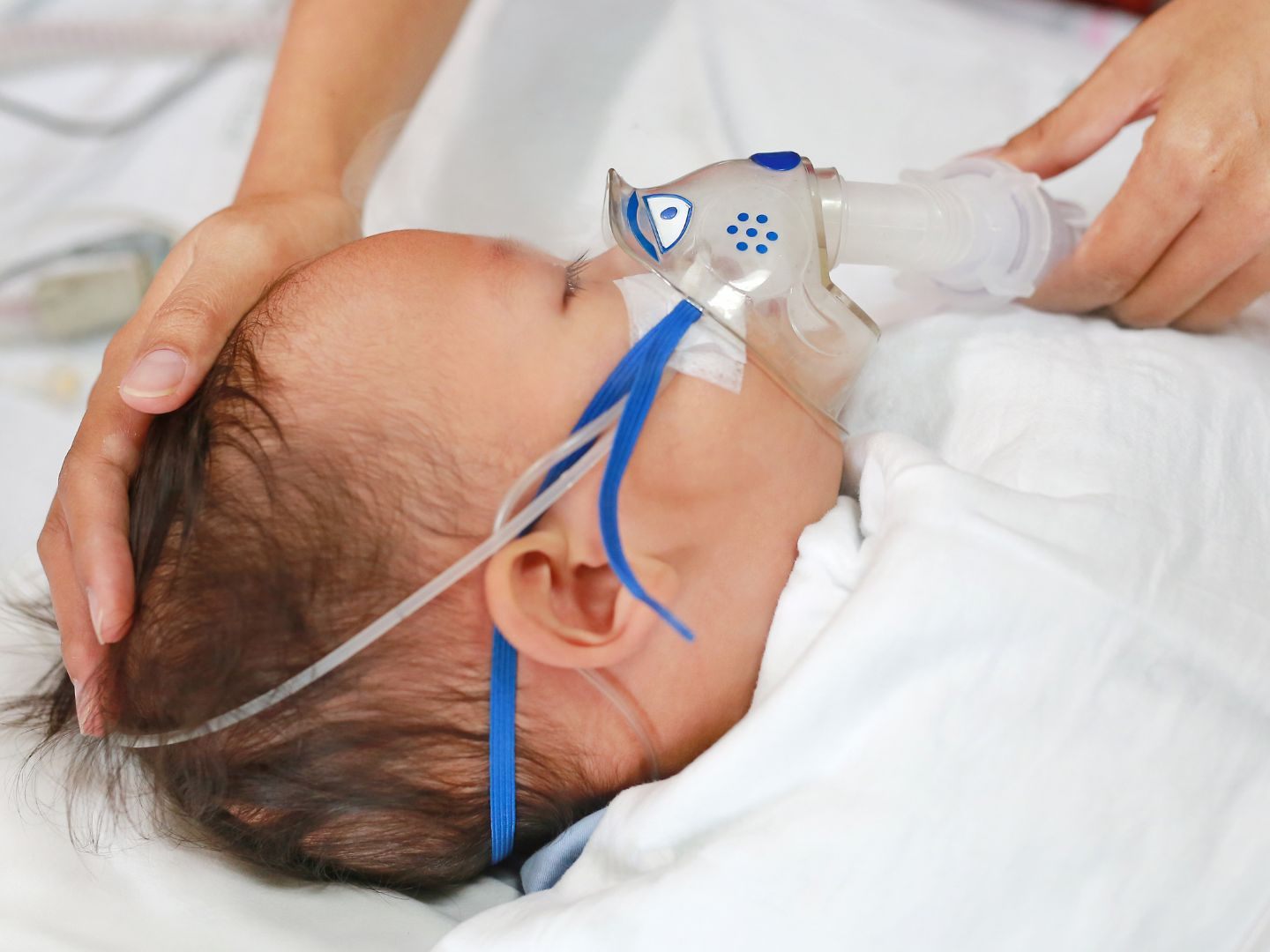First Free RSV Immunization for Babies Throughout the Entire Cold Season

The risk of a severe course is particularly high in the first six months of life, warned the physician Volker Strenger in a background discussion initiated by the pharmaceutical company Sanofi with the APA. It is about being best protected during the season, so the immunization of newborns during the cold season should take place "right in the first days of life." Children with an increased risk of severe courses, for example with heart or lung diseases, also receive the immunization before their second RSV season.
RSV in Babies: Intensive Care May Be Necessary
While the Respiratory Syncytial Virus (RSV) is a "common cold virus" for older children and adults, severely ill infants are often affected by bronchiolitis - an inflammation of the smallest, cartilage-free bronchi. This can lead to hospitalization "and in some cases also to the necessity of intensive care," and in a not so good healthcare system in other countries, even to death, said Strenger from the University Clinic for Pediatrics and Adolescent Medicine at the Med Uni Graz.
Unlike adults, there is no approved RSV vaccine in the classical sense of active immunization for children. The so-called passive immunization involves the administration of monoclonal antibodies that protect against severe courses.
"Offer for All" as Equal Opportunity
The free immunizations were gradually rolled out by the Ministry of Health last winter. Now, for the first time, they are available to all children for their first RSV season starting in October. This provides "equal opportunity" and an "offer for all, no matter where the child lives, whether mom and dad can afford it or not," said the Styrian Health Councilor Karlheinz Kornhäusl (ÖVP) in the conversation ahead of the 63rd Annual Meeting of the Society for Pediatrics and Adolescent Medicine (ÖGKJ) in Graz, which takes place from Wednesday to Friday.
The free immunization for children has the potential to relieve hospitals and their pediatric departments, practices, and pediatricians, said the ÖVP politician and specialist in internal medicine. "We got through last winter better than the one before or the one before that," he emphasized. The children born in the past season were immunized from December, added Strenger, head of the Infectiology Working Group of the ÖGKJ. "We clearly had fewer admissions and hardly any in the intensive care unit," he reported.
Protection Effects Around 80 Percent
The seasons are also different, and the data is still being evaluated. However, it is to be expected that the "relief is also based on this," said the university professor regarding passive immunizations. Results in international model regions showed protection effects of around 70 to 90 percent with different parameters such as infection, hospitalization, or intensive care admission.
According to company information, all ordered doses for the upcoming RSV season are already in stock. This could achieve immunization rates of around 80 percent. For high acceptance, educating parents is important, emphasized Strenger and Kornhäusl. Of course, money is being spent to finance the immunization for newborns, said Kornhäusl. However, this is well invested because "this step of prevention ultimately costs less than a hospital or intensive care bed," emphasized the regional health councilor.
RSV Adult Vaccination Not Free for Now
Whether the RSV vaccination for adults, which is generally recommended in Austria by the National Vaccination Committee (NIG) from the age of 60, will also be free, is a "decision for the Federal Target Control Commission, where the federal government sits together with the social insurance carriers and the nine federal states," said Kornhäusl upon inquiry. Of course, this will be an issue for the future. It is pleasing that adult vaccinations are also being included in the free vaccination program, said Strenger regarding the announcement by the Ministry of Health in July to offer vaccinations against pneumococci and shingles free of charge from the age of 60.
(APA/Red.)
This article has been automatically translated, read the original article here.





